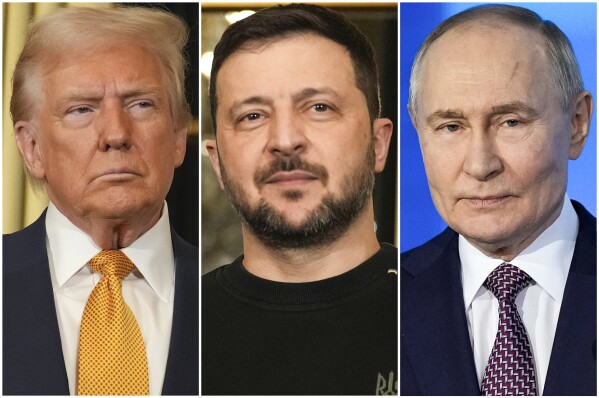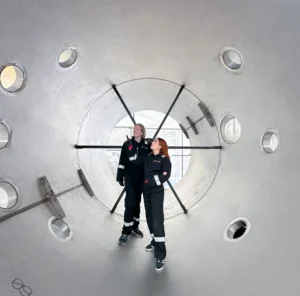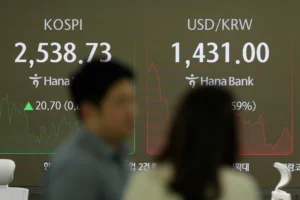In a significant diplomatic development, President Donald Trump and Russian President Vladimir Putin have reportedly agreed to initiate talks on a ceasefire aimed at addressing energy and infrastructure concerns related to the ongoing war in Ukraine.
According to the White House’s readout of their recent call, both leaders emphasized the need for a lasting peace in the conflict, which has claimed thousands of lives and caused widespread destruction across Ukraine.
The White House description of the conversation revealed that Trump and Putin are looking to begin immediate discussions on a ceasefire focused specifically on energy and infrastructure, with plans to start technical negotiations aimed at implementing a maritime ceasefire in the Black Sea. The readout also mentioned that the broader goals of these talks include the eventual establishment of a full ceasefire and the prospect of long-term peace between Russia and Ukraine.
While the readout made no mention of Putin agreeing to a 30-day ceasefire, a proposal Trump has endorsed and received backing from Ukraine, the two leaders expressed their shared commitment to advancing peace through dialogue. Both leaders are reportedly optimistic about the possibility of improved bilateral relations between the United States and Russia, which could bring about significant economic opportunities and enhanced geopolitical stability, contingent on a resolution to the conflict.
The decision to focus initially on energy and infrastructure as part of the ceasefire agreement highlights the critical role these sectors play in the ongoing war. With major energy pipelines and infrastructure sites targeted by both Russian and Ukrainian forces, the proposed ceasefire aims to limit further damage to vital resources that are essential for both countries’ economic survival.
In addition to the energy and infrastructure ceasefire, the talks are expected to address broader military concerns, including the establishment of a maritime ceasefire in the Black Sea. The region has been a flashpoint in the conflict, with both sides competing for control over strategic waterways and port access.
One of the most notable aspects of the Trump-Putin conversation is their shared vision of a future where US-Russia relations are significantly improved. According to the White House, the two leaders agreed that a successful peace process would lead to enormous economic deals and a more stable geopolitical environment for both nations. This aligns with Trump’s broader foreign policy goals of strengthening American economic interests abroad while promoting stability in conflict regions.
The possibility of such economic deals underscores the importance of peace in the region, particularly in the energy sector. Russia is a major player in global energy markets, and any resolution to the Ukraine conflict could have far-reaching effects on global energy prices and supply chains. For the United States, ensuring a stable energy market is a key priority, especially as the world grapples with the long-term effects of climate change and energy security concerns.
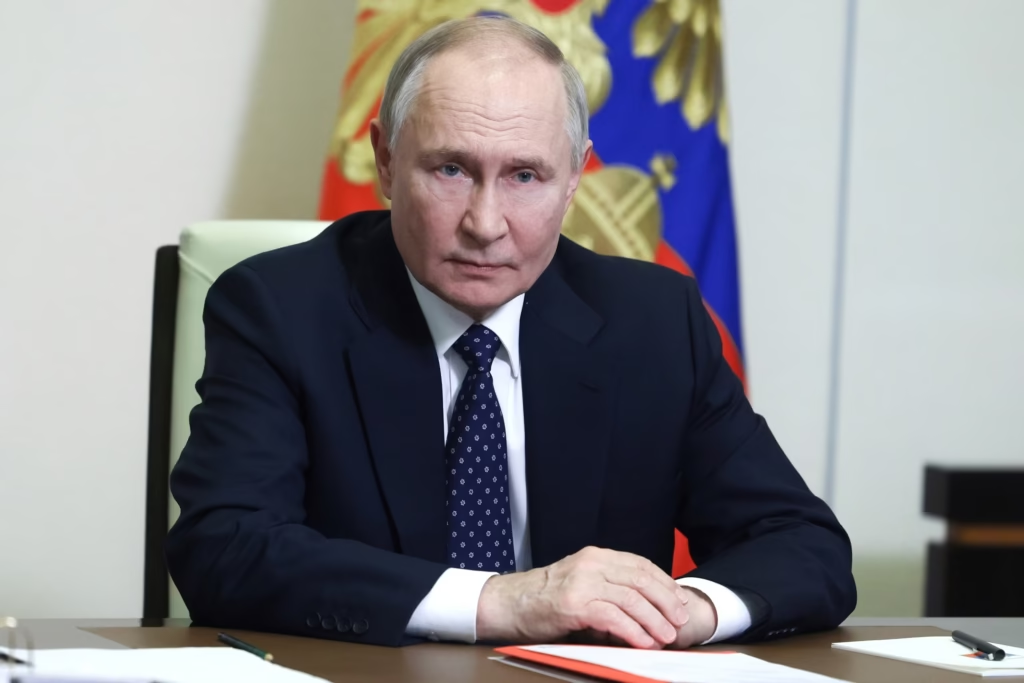
ABC News – The Walt Disney Company
Vladimir Putin’s role in these discussions remains central to the ongoing peace talks. As the leader of Russia, he has been a key player in shaping the direction of the conflict in Ukraine. His commitment to negotiating a ceasefire could mark a significant turning point in the war, especially if it leads to a formal end to hostilities.
Putin’s agreement to begin talks on a ceasefire also aligns with broader efforts within Russia to stabilize its position on the global stage. The ongoing war has resulted in severe international sanctions against Russia, impacting its economy and international standing. A resolution to the conflict could help Russia regain some of its geopolitical influence, particularly in Europe and the Middle East, where its military presence has been increasingly challenged by the West.
The announcement of talks between Trump and Putin has drawn mixed reactions from the international community. Some analysts see this as a positive step towards a peaceful resolution to the Ukraine conflict, while others remain skeptical about Russia’s intentions. Critics argue that Putin has shown little willingness to negotiate seriously in the past, particularly when it comes to halting military aggression in Ukraine.
On the other hand, proponents of the agreement hope that this dialogue represents a breakthrough in what has been a long-standing and destructive conflict. By focusing on energy and infrastructure as initial points of negotiation, there is potential for both sides to find common ground, given the shared importance of these sectors to their economies.
The proposed ceasefire is expected to have a profound impact on the ongoing war in Ukraine. For months, both Russia and Ukraine have faced significant losses in terms of lives and resources. The war has caused widespread damage to critical infrastructure, including energy grids, factories, and transportation systems. A ceasefire focusing on these sectors could allow for the rebuilding of vital infrastructure, improving the quality of life for civilians on both sides.
The economic implications of such a ceasefire are also significant. Ukraine has been heavily reliant on energy imports from Russia, while Russia has faced increasing pressure to stabilize its economy amid sanctions. A cessation of hostilities would allow both nations to refocus on rebuilding their economies and addressing the long-term effects of the war.
Amid these discussions, humanitarian concerns continue to mount. The conflict has displaced millions of people and created widespread suffering, particularly in the eastern regions of Ukraine. Aid organizations have struggled to provide adequate support, as the fighting continues to disrupt essential services and supply chains.
The United States, along with international partners, has been involved in providing humanitarian aid to Ukraine. However, the ongoing conflict has made it difficult for these efforts to reach those in need. A ceasefire focused on humanitarian needs, particularly in the energy and infrastructure sectors, could help alleviate some of the suffering faced by civilians.
While the announcement of talks between Trump and Putin is promising, there are many challenges ahead. The road to peace in Ukraine is fraught with uncertainty, and both sides have entrenched positions that will be difficult to overcome. However, the fact that both leaders have agreed to begin discussions is a hopeful sign that progress could be made in ending the conflict.
For now, the focus will be on the immediate talks about energy and infrastructure ceasefire, with hopes that these discussions will pave the way for broader peace negotiations. As the situation continues to evolve, the role of Putin and his willingness to negotiate will remain a critical factor in determining the future of the war in Ukraine.
Here’s an SEO-optimized version of the news about the Trump-Putin call and the prisoner exchange:
Trump-Putin Call Ends on Positive Note, Talks Lead to Ukraine-Russia Prisoner Exchange Announcement
In a significant diplomatic development, the phone call between Russian President Vladimir Putin and US President Donald Trump reportedly concluded with a positive outcome, according to a Russian source familiar with the conversation. The source confirmed that the call had ended and described it as having gone “very well,” highlighting the potential for future cooperation between the two nations.
Putin’s special envoy, Kirill Dmitriev, took to social media platform X (formerly Twitter) to express optimism, stating that “the world has become a much safer place today” thanks to the leadership demonstrated by both Putin and Trump. However, the Kremlin has yet to issue an official comment on the details of the phone call.
Earlier, Dan Scavino, Deputy Chief of Staff at the White House, shared that the call was progressing positively, reinforcing the sense of a productive conversation between the two leaders. The exchange came at a crucial time as both countries continue to navigate the complex geopolitical landscape, particularly in light of the ongoing conflict in Ukraine.
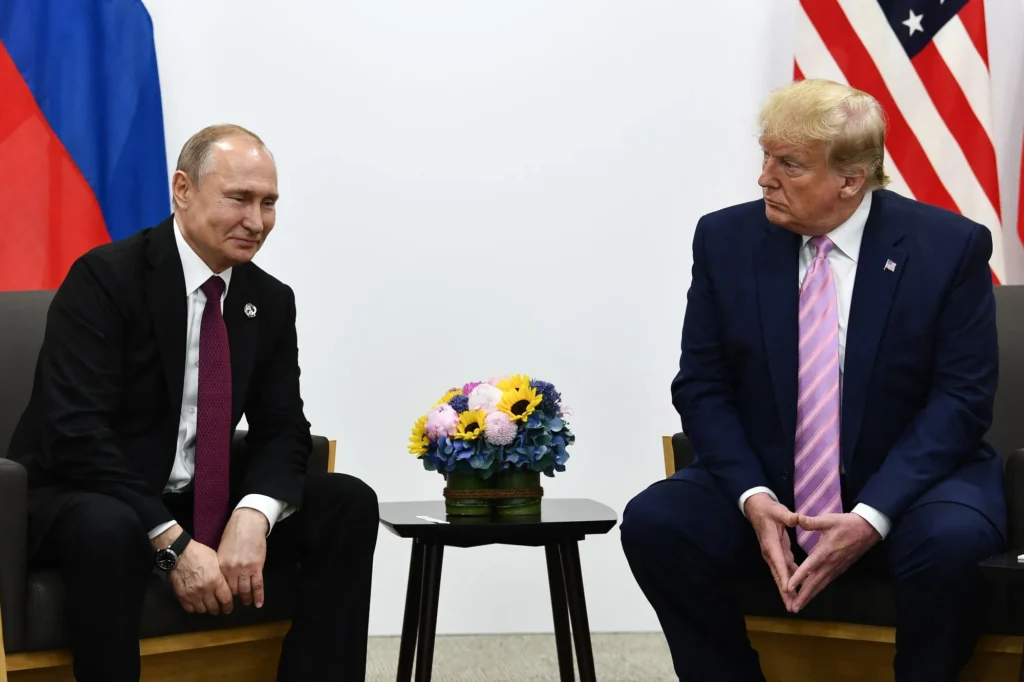
In a significant breakthrough stemming from the call, President Putin informed President Trump that a prisoner exchange between Russia and Ukraine would take place on March 19. According to a Kremlin readout of the call, the exchange would involve 175 individuals from both sides, marking a rare moment of cooperation amid the ongoing conflict.
The agreement also includes a humanitarian gesture: 23 seriously wounded Ukrainian servicemen, currently receiving treatment in Russian medical facilities, will be transferred as part of the exchange. This move highlights the potential for further goodwill gestures in the future, even as tensions remain high between the two countries.
The prisoner exchange, which has been highly anticipated by both sides, marks a hopeful step toward resolving some of the humanitarian concerns surrounding the ongoing war. With this action, both Russia and Ukraine have signaled their willingness to engage in dialogue, despite the challenges posed by the ongoing conflict.
The positive tone of the Trump-Putin phone call suggests that the two leaders may be laying the groundwork for continued diplomatic efforts. While the Kremlin has not provided an official statement on the conversation’s full details, the announcement of the prisoner exchange signals that both leaders are willing to make tangible steps toward easing tensions.
The prisoner exchange, while a small but significant action in the broader context of the war, offers a glimmer of hope for future diplomatic resolutions. Experts have long argued that the way forward in Ukraine involves finding areas of mutual agreement, particularly when it comes to humanitarian issues.
The call between Trump and Putin and the subsequent announcement of the prisoner exchange have drawn reactions from both supporters and critics around the world. Supporters of the dialogue between the US and Russia see this as a positive sign that the two superpowers could be moving toward de-escalating some of the global tensions. However, skeptics caution that while these gestures are encouraging, they do not necessarily indicate a broader shift in the dynamics of the war in Ukraine.
For now, the world watches as the scheduled prisoner exchange takes place tomorrow, with hopes that this small but important act of goodwill could pave the way for more meaningful progress in the region. As the situation continues to evolve, the leadership of both Putin and Trump will likely remain key to the unfolding events.

